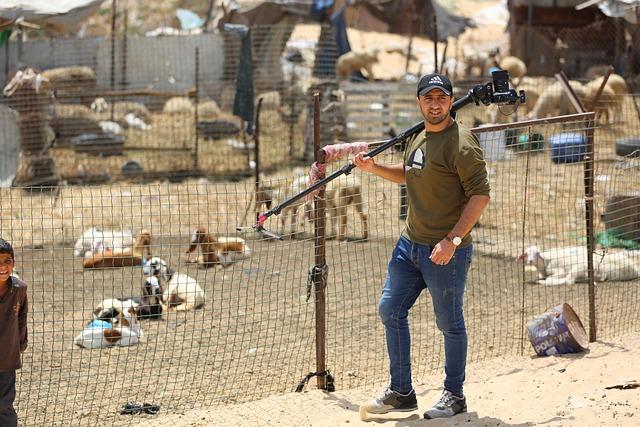The Sahel region has emerged as a volatile battleground where jihadist militancy and Russian influence intersect, creating a perilous dynamic with significant implications for regional stability. As Russia deepens its involvement through military partnerships and political support, armed Islamist groups exploit the ensuing chaos, fueling violence and undermining efforts to establish security. This article examines the rise of jihadism in the Sahel, Russia’s expanding footprint, and the complex interplay that threatens to destabilize one of Africa’s most fragile regions.
Jihadism and Russian Influence Fuel Instability Across the Sahel
Across the vast and porous borders of the Sahel, the convergence of jihadist insurgencies and growing Russian intervention has led to a volatile and deteriorating security landscape. Armed groups exploiting ethnic tensions and weak governance continue to expand their foothold, while the Kremlin-backed paramilitary forces, including the infamous Wagner Group, have intensified their presence under the guise of counterterrorism. This alliance has not only complicated international efforts but has also deepened mistrust among local populations, undermining regional stability. The synergistic effects of jihadist violence and Russian influence create a precarious environment where both actors benefit from chaos, perpetuating cycles of violence and lawlessness that challenge Western and African security strategies alike.
Key factors driving this instability include:
- Escalating clashes between jihadist factions and government forces weakened by shifting allegiances
- Russian military support focused on consolidating influence rather than sustainable peace
- Economic disruptions exacerbated by insecurity, limiting development and humanitarian aid delivery
- Local populations caught between competing powers, leading to displacement and human rights abuses
| Actor | Role | Impact |
|---|---|---|
| Jihadist Groups | Insurgency & control | Territorial expansion & violence |
| Russian Forces | Military support & influence | Increased instability & distrust |
| Local Governments | Security enforcement | Fragmented response capability |
Weaponization of Local Grievances Magnifies Security Threats in the Region
The intricate exploitation of local discontent has become a pivotal factor exacerbating security challenges across the Sahel. Islamist militant groups are not merely exploiting ideological narratives but are adeptly leveraging economic deprivation, ethnic tensions, and political marginalization to bolster recruitment and operational capacity. This strategy transforms pockets of genuine grievances into volatile flashpoints, allowing insurgents to embed themselves deeply within communities that feel abandoned or oppressed by centralized authorities.
Key dynamics fueling this trend include:
- Manipulation of inter-communal rivalries: Militants stoke existing ethnic and clan divisions to fracture local unity.
- Economic disenfranchisement: By offering financial incentives and social services, insurgents fill voids left by state failure.
- Political exclusion: Marginalized groups are courted as partners in exchange for loyalty, embedding terror networks within civil society.
| Factor | Impact on Security | Resulting Threat |
|---|---|---|
| Ethnic tensions | Polarization of communities | Increased localized violence |
| Economic hardship | Recruitment opportunities for militants | Expansion of insurgent networks |
| Political exclusion | Diminished trust in authorities | Legitimization of armed groups |
International Cooperation Urged to Counter Expanding Militancy and Foreign Intervention
The escalating threat of jihadist groups in the Sahel region calls for an unprecedented level of international collaboration. Multiple states and organizations must unite to effectively respond to the evolving security landscape, which is complicated by intertwined agendas and increasing foreign intervention. Experts emphasize that isolated national efforts have proved insufficient, as militants exploit porous borders and local grievances to expand their foothold. Key strategies proposed include:
- Enhanced intelligence sharing among affected countries
- Joint military operations with clear mandates
- Increased funding for local governance and community resilience programs
- Multilateral diplomatic initiatives to curb external political influences
Russia’s expanding presence in the region adds a complex layer to this dynamic, often complicating coordination among Western powers and regional forces. Its military support and private security contractors have shifted power balances, contributing to tensions that jihadist factions exploit. A comparative overview of foreign involvements underscores the stakes:
| Foreign Actor | Type of Engagement | Impact on Stability |
|---|---|---|
| France | Counterterrorism operations | Mixed; tactical successes, but local resentment |
| Russia | Military aid & private security | Destabilizing; fuels regional rivalries |
| UN/EU | Peacekeeping and humanitarian aid | Stabilizing; promotes governance |
Concluding Remarks
As the Sahel continues to grapple with mounting violence and instability, the convergence of jihadist insurgencies and Russian involvement underscores the region’s deepening complexity. The entanglement of these forces not only jeopardizes local security but also poses broader challenges for international efforts aimed at restoring peace. Moving forward, understanding this toxic mix is crucial for policymakers seeking to address the Sahel’s enduring crisis and to prevent further deterioration in one of Africa’s most volatile regions.




